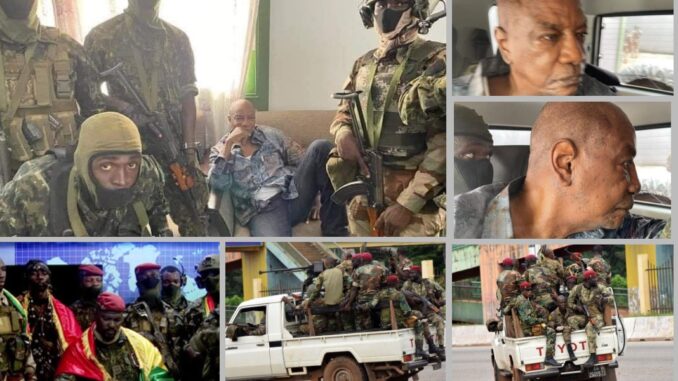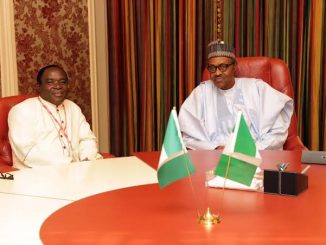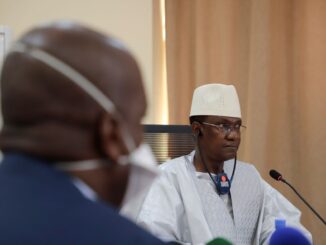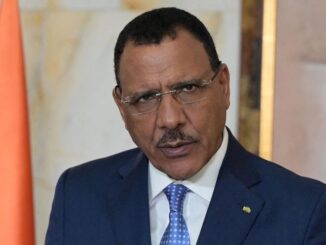
An elite national army unit has announced it has seized power in Guinea and deposed the country’s president, Alpha Condé, in an attempted coup, after heavy gunfire was heard near the presidential palace in the capital, Conakry, on Sunday morning.
An unidentified soldier wrapped in the country’s flag said in a brief address on the national broadcaster, Radio Television Guinea, that the country’s parliament and constitution had been suspended and the borders shut, saying: “We are taking our destiny in our own hands.”
However, the defence ministry said an attack on the presidential palace by mutinous forces had been put down. “The presidential guard, supported by the loyalist and republican defence and security forces, contained the threat and repelled the group of assailants,” it said in a statement. “Security and combing operations are continuing to restore order and peace.”

The wellbeing of Condé, 83, in power since 2010, has not been confirmed, but pictures circulating on social media showed soldiers surrounding the president as he leaned back on a sofa in bare feet, in jeans and a partially open shirt and vest.
Mamady Doumbouya, the leader of the coup attempt, said that elites in the country had mistreated the country and that there would be an 18-month transition period.
The Guardian said unrest had erupted on Sunday morning when residents in Conakry shared videos on social media of military vehicles patrolling the streets.
ALSO READ: US national debt expected to approach $89 trillion by 2029 — Report
Witnesses told Reuters they had seen two civilians with gunshot wounds amid the fighting. “I see groups of soldiers heading towards the presidency. There has been a lot of shooting,” said Ousmane Camara in the central district of Kaloum, which was deserted and under heavy military presence. There were unconfirmed reports on Sunday of military casualties, and a reporter for Reuters witnessed an ambulance and military convoys approaching the palace vicinity.
Witnesses said soldiers had sealed off the only bridge connecting the mainland to the Kaloum neighbourhood, which houses the presidential palace and most government ministries.

The unrest in Guinea comes less than a year after Conde – a former widely respected activist and veteran opposition figure – won a third term last November, to widespread dismay. Last March, Guinea voted on a controversial referendum approving changes to the constitution, allowing the president to serve a further two terms. The opposition boycotted the referendum and more than 40 people died in violent protests before the vote.
The upheaval in Guinea also comes amid deepening political unrest in west Africa, and a resurgence of third-term bids or attempts to amend constitutions on the continent.
In May, a second military coup within a year in Mali brought a young colonel to power in the country beset with jihadist violence, which is rising in the Sahel. Last year, Ivory Coast’s president, Alassane Ouattara, won a controversial third term, running for office after previously pledging to step down.
Condé’s grip on power has sparked outrage in the mineral-rich coastal nation, which despite a rise in economic growth and development remains highly unequal and impoverished.
Last week, Condé sparked further outrage after a bill was passed increasing his salary.




